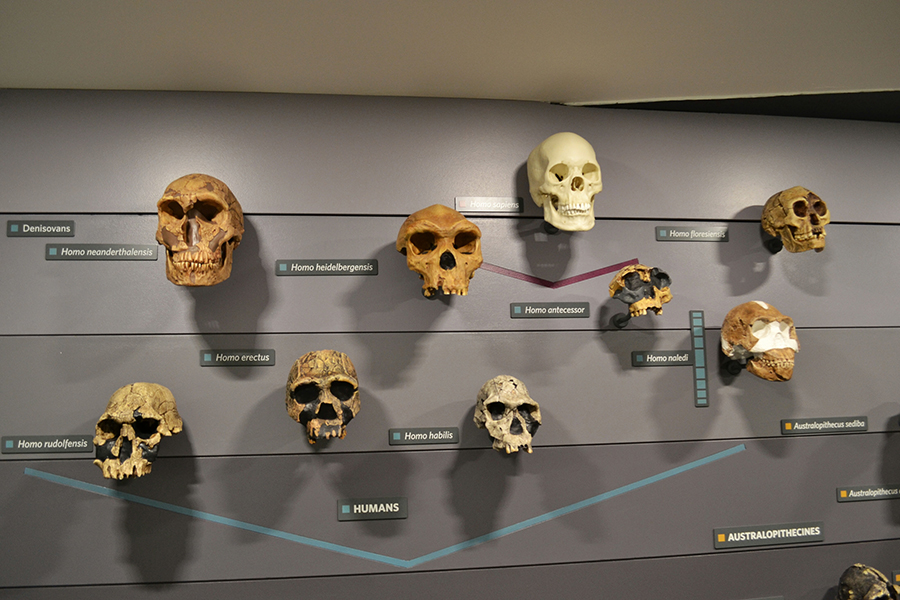The Bahá’í Faith, founded in the 19th century, offers an intricate worldview that addresses the destiny of humanity. A pressing question emerges from its teachings: will humans ever become extinct or are we destined to evolve to a higher plane of existence? This query invites not only theological reflection but also introspection into the current trajectory of human behavior and societal evolution. The juxtaposition of extinction and evolution carries profound implications, and the Bahá’í teachings provide a framework with which to examine these transformations.
One fundamental principle of the Bahá’í Faith is the unity of humanity. This notion posits that the well-being of individuals is inextricably linked to the welfare of the entire human race. The idea that isolation and disunity can lead to catastrophic outcomes resonates with the notion of extinction. Historical precedents abound where a lack of cooperation among groups has precipitated societal collapse. Such reflections compel a consideration of whether humanity’s current divisive tendencies could precipitate a trajectory towards extinction.
Moreover, the Bahá’í writings emphasize the importance of social and economic advancement as foundational to human evolution. Herein lies the elegant paradox: while extinction is a potential outcome rooted in the failure to embrace unity and cooperation, evolution remains an option contingent upon the conscious efforts of individuals to foster community and shared understanding. This evolutionary thrust is characterized not merely by physical survival but by spiritual and moral advancement, which may elevate humanity to a more enlightened state.
Another pivotal element within the Bahá’í doctrine is the concept of progressive revelation. Adherents believe that divine guidance is imparted incrementally throughout history via a series of Manifestations of God, including Moses, Christ, Muhammad, and more recently, Bahá’u’lláh. This linear progression suggests that humanity’s current existential challenges are not to be overlooked but rather understood as opportunities for growth. The dialogue around our ultimate fate must include an acknowledgment of our potential for moral evolution—a process that aligns with the teachings on the inherent nobility of humanity.
In contemplating extinction versus evolution, one must also engage with the environmental and social challenges that imperil humankind. Climate change, social injustice, and the proliferation of conflict are contemporary realities that could engender existential crises. The teachings assert that the current predicament reflects humanity’s failure to recognize its interconnectedness. The call for global stewardship echoes through the writings of Bahá’u’lláh, intimating that environmental degradation could serve as a harbinger of extinction if left unaddressed. Conversely, collective action and a commitment to sustainable practices could catalyze significant evolutionary progress, both for humanity and the planet.
The challenge lies in reconciling the tension between technological advancement and ethical responsibility. The Bahá’í perspective emphasizes that technological innovations should serve the betterment of humanity rather than exacerbate divisions or inequalities. The ethical dilemmas posed by emerging technologies such as artificial intelligence, genetic engineering, and biotechnology must be navigated with precision. The potential for such tools to contribute to either human flourishing or demise reflects the pivotal choices humanity faces. Decisions made in this period of rapid advancement will ultimately shape the future of human existence.
Furthermore, the principle of free will underscores every aspect of the Bahá’í teachings. Humanity possesses the capacity for choice—choices that can either lead to collective decline or a brighter evolutionary path. The existence of free will renders extinction a potential consequence of neglecting to act in accordance with divine principles. The Bahá’í writings articulate a vision where individuals harness their free will to unite for common causes, transcending national boundaries and engaging in constructive dialogue that fosters understanding and compassion.
A playful question arises: are we, as a global society, capable of altering our course towards a more evolutionary trajectory? Can the teachings of the Bahá’í Faith galvanize a transformation that propels humanity beyond its current challenges, guiding us toward an enlightened future? The answers to these queries remain elusive, but the teachings of unity, cooperation, and selflessness provide beacons of hope on this arduous journey.
In summary, the discourse surrounding the potential extinction or evolution of humanity within the framework of Bahá’í teachings presents a multifaceted exploration of our collective destiny. While extinction remains a daunting possibility, rooted in division and ethical negligence, the path toward evolution is illuminated by the principles of unity, progressive revelation, and ethical stewardship. The onus rests upon humanity to make conscientious choices that reflect the interconnectedness of our existence. As we grapple with these existential questions, the Bahá’í teachings may serve as a guiding light, urging us to transcend obstacles and embrace a future of harmonious coexistence, ultimately steering us toward a destiny of evolution rather than extinction.
